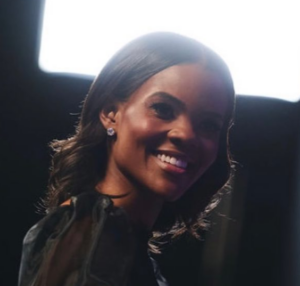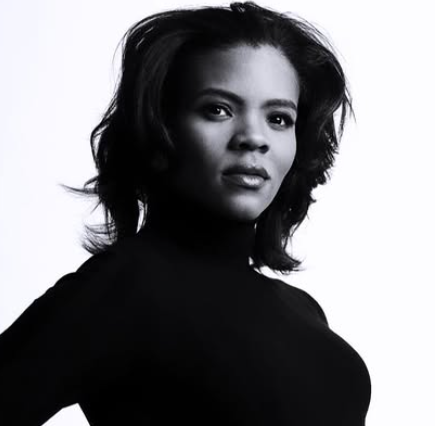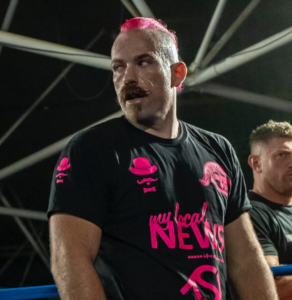The intersection of Candace Owens’ allegations, Mark Zuckerberg’s admissions, and the Biden administration’s alleged pressure on Facebook has reignited debates about censorship, free speech, and the role of social media
Joe Rogan’s COVID-19 commentary and the ensuing fallout represent a defining moment for podcasting and digital media.
The controversy underscored the power of platforms like JRE to shape public opinion, as well as the risks associated with such influence.
Ultimately, Rogan’s experience serves as both a cautionary tale and a testament to the evolving dynamics of modern media.

Table of Contents
Candace Owens and Mark Zuckerberg: Collision of Views
Candace Owens, a polarizing commentator and political influencer, has made waves yet again by drawing attention to Mark Zuckerberg’s recent remarks on “The Joe Rogan Experience” (JRE).1
Her response to Zuckerberg’s revelations regarding Facebook’s handling of COVID-19-related content has sparked debates about censorship, free speech, and political influence.
In episode #2255 of JRE, Mark Zuckerberg discussed a range of topics, including the Biden administration’s response to COVID-19 and its alleged role in pressuring Facebook to regulate pandemic-related content.
The Meta CEO stated that government officials went as far as “screaming” at Facebook employees, accusing the platform of enabling misinformation that led to avoidable deaths. This revelation sheds light on the contentious interplay between social media platforms and political leadership during a global crisis.
Premiering in two minutes! https://t.co/CbF4Fr5L8Z
— Candace Owens (@RealCandaceO) January 10, 2025
Government Pressure and Allegations of Censorship
Zuckerberg’s statements on JRE included a critical point: the Biden administration allegedly pushed Facebook to suppress even legitimate information about COVID-19.
He recounted instances where officials blamed social media platforms for spreading misinformation, going so far as to accuse them of “killing people.”
This intense rhetoric underscores the tension between Silicon Valley and Washington during the pandemic.
Candace Owens has long claimed she was unfairly targeted for her outspoken views on COVID-19 and vaccines.
Following Zuckerberg’s admission, she highlighted a crucial inconsistency: Facebook’s legal defense during her lawsuit denied any targeted actions against her. Owens’ account was demonetized during that period, resulting in significant financial losses, she claims.

Candace Owens’ Lawsuit Against Facebook
In her legal battle with Facebook, Owens argued that the platform had wrongfully censored her for expressing opinions that aligned with her First Amendment rights.2
At the time, Facebook’s lawyers countered her claims, denying any deliberate targeting. However, Zuckerberg’s recent statements appear to vindicate Owens’ perspective, at least partially, by admitting to government influence on Facebook’s policies.
Facebook’s role during the pandemic has been both transformative and controversial. On the one hand, it provided a platform for critical information sharing.
On the other, accusations of overreach in content moderation fueled concerns about censorship. Zuckerberg’s candid admission on JRE adds weight to the argument that platforms like Facebook faced undue political pressure.
The Biden Administration’s Alleged Overreach
The Biden administration’s alleged involvement in pressuring social media platforms raises important questions about the limits of governmental influence.
While public health crises may warrant collaboration between tech giants and governments, the line between guidance and coercion can become dangerously blurred. Zuckerberg’s testimony hints at a crossing of that line.
The saga involving Owens, Zuckerberg, and the Biden administration underscores the complex relationship between politics and technology. It serves as a cautionary tale about the dangers of excessive governmental influence over private companies.
For platforms like Facebook, rebuilding trust with users requires greater transparency and consistency in content moderation practices. Zuckerberg’s candidness on JRE is a step in that direction, but much work remains to be done.

Candace Owens’ Perspective
An Echo of Vindication
For Owens, Zuckerberg’s revelations validate her earlier claims of being unfairly silenced.3
In an X update, she wrote, “What’s really annoying about this is that I sued Facebook for censoring my account related to me telling the truth about vaccines and their lawyers argued that I was not targeted.
Now Mark is admitting I was.” This pointed remark encapsulates her frustration and reignites her narrative of standing up against systemic suppression.
The monetary impact of Facebook’s actions on Owens’ career cannot be understated. According to her, demonetization resulted in significant income loss during a critical period.
The broader implications extend to other creators and influencers who may have faced similar repercussions, fueling debates about the fairness and transparency of social media policies.
Balancing Free Speech and Responsibility
Zuckerberg’s revelations highlight the complexities of managing a platform as vast and influential as Facebook.
Striking a balance between free speech and responsible content moderation is no easy task, particularly when navigating a politically charged environment.
His acknowledgment of government pressure underscores the delicate position social media companies often find themselves in.
The public response to both Zuckerberg’s interview and Owens’ comments has been predictably polarized.
Supporters of Owens view her as a champion of free speech and an opponent of government overreach. Critics, however, question the accuracy of her claims and accuse her of capitalizing on controversy for personal gain.

The Broader Implications of Censorship
The debate surrounding Owens and Zuckerberg speaks to a larger issue: the role of censorship in a digital age.
Should platforms like Facebook have the authority to decide what information is deemed “legitimate”? Or should they prioritize free expression, even at the risk of spreading misinformation? These are questions that remain unresolved.
While social media platforms have undoubtedly played a role in combating misinformation, they have also faced criticism for lack of accountability.
Zuckerberg’s comments reveal the immense pressure Facebook faced from government officials, prompting further scrutiny of the platform’s decision-making processes.
COVID-19 and the Politics of Information
The pandemic served as a battleground for competing narratives, with social media at the center.
Government agencies, media outlets, and independent voices clashed over what constituted credible information. Facebook’s position as a gatekeeper of information placed it in a highly contentious role.
Joe Rogan’s podcast has emerged as a space for unfiltered conversations on controversial topics. His interview with Zuckerberg offered a rare glimpse into the internal struggles of a tech giant grappling with external pressures.
Rogan’s ability to facilitate candid dialogue continues to draw a diverse audience.

Also Read: Candace Owens: Disability Explained, New Born Baby, Bio, Wiki, Age, Career, Net Worth 2023 and More
Candace Owens and the Power of Social Media Advocacy
Owens’ ability to amplify her perspective through social media demonstrates the power of these platforms as tools for advocacy.
Despite her criticisms of Facebook, she has successfully used platforms like X to reach millions and shape public opinion.
Owens’ lawsuit against Facebook raises critical questions about the legal boundaries of content moderation.
How can individuals hold tech companies accountable for perceived bias or unfair treatment? This case highlights the need for clearer regulations governing social media practices.
Meta’s Challenges in Navigating Political Waters
As the parent company of Facebook, Meta faces unique challenges in managing its global influence. Zuckerberg’s admissions reveal the difficulties of operating in a politically charged environment while maintaining neutrality and public trust.
Zuckerberg’s revelations can be likened to whistleblowing, as they expose behind-the-scenes dynamics that the public might otherwise remain unaware of. Such disclosures are crucial for fostering transparency and accountability.
Owens’ response to Zuckerberg’s statements suggests she may continue to pursue legal or public avenues to seek redress. Her focus on this issue reflects her broader mission to challenge perceived injustices in the realm of free speech.

Candace Owens: Spotify’s Dilemma
As the controversy unfolded, Spotify found itself in a difficult position. On one hand, the streaming giant had invested heavily in its exclusive partnership with Rogan, reportedly worth $100 million.
On the other hand, the pressure from healthcare professionals and a portion of the public demanded action. In response, Spotify removed approximately 70 episodes of JRE from its platform.
While Spotify stated that the decision was not solely due to COVID-19 misinformation, the timing suggested otherwise.
Rogan’s situation reignited debates about free speech, censorship, and the responsibilities of media platforms.
Supporters of Rogan argued that his podcast represents the essence of free expression, allowing diverse viewpoints to be heard. Critics, however, contended that with great influence comes great responsibility.
They emphasized the potential harm caused by amplifying unverified or misleading information, particularly during a global health crisis.
View this post on Instagram
The Role of Social Media Amplification
Social media platforms further amplified the controversy surrounding Rogan. Clips from his episodes discussing COVID-19 frequently went viral, sparking intense debates online.
This virality magnified the reach of his opinions, making them a focal point of the public discourse. While some praised Rogan for questioning authority, others criticized him for lacking journalistic rigor.
The fallout from Rogan’s COVID-19 commentary extended to his relationships with fellow celebrities. Several prominent figures voiced their opinions on the matter.
Music legends Neil Young and Joni Mitchell publicly opposed Rogan’s presence on Spotify, with Young even demanding that his music be removed from the platform.
Conversely, comedians and podcasters like Dave Chappelle and Andrew Schulz defended Rogan, emphasizing his right to express his views.
Also Read: Lady Ballers a Comedy Masterpiece: Casts, Plots And About Explained




